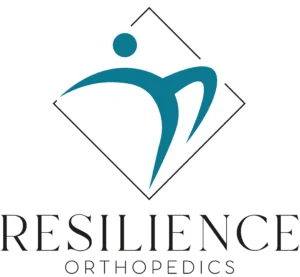Table of Contents
Knee pain can stop you in your tracks. The swelling, the stiffness, even the popping sensation can make moving around harder than it should be. These symptoms often point to a meniscus tear, a common knee injury that may leave you feeling limited and unsure if you’ll ever get back to normal.
At Resilience Orthopedics, we understand how much this takes a toll on your life. Dr. Pamela Mehta and our team are here to listen, care, and guide you toward the right treatment, so you can move forward with confidence and get back to doing the things you love.
Key Takeaways:
- Meniscus tears can happen from sports, injuries, or daily wear and tear.
- Symptoms include knee pain, swelling, stiffness, or the knee locking or giving way.
- Seeing an orthopedic specialist early helps prevent long-term damage.
- Meniscus tears are treatable with both non-surgical and surgical care, and newer options like PRP show promise.
What is a Torn Meniscus and What Does It Feel Like?
The meniscus is a crescent-shaped cushion of cartilage that lies between your thigh bone and shin bone. Each knee has two, one on the inside and the other on the outside.
They absorb impact, reduce friction between the bones, and protect the entire knee joint. If your knee isn’t working the way it should, you may notice:
- Your knee feels stuck or doesn’t move smoothly
- You hear or feel clicking, popping, or crackling when you move
- Instead of sharp pain, you feel a dull ache that lingers through the day
These sensations aren’t always a cause for concern. But they may also point to issues like a meniscus tear, arthritis, ligament damage, or even a patellar tendon tear.
Book a Consultation with Dr. Pamela Mehta, MD
The Best Orthopedic Surgeon in San Jose
Dr. Mehta is a board-certified orthopedic surgeon who can help you recover from your joint condition. If you:
- Are Suffering From Pain and Mobility Issues
- Need Orthopedic Assessment and Advice
- Want Treatment From a Top Orthopedic Doctor
We Can Help
Common Causes of a Torn Meniscus
Injury-Related Tears
A torn meniscus can happen in different ways:
- Sports with sudden stops or twists, like football, basketball, soccer, or tennis, may put stress on the knee and lead to a tear.
- Endurance sports such as running or cycling may gradually wear out the meniscus until it tears.
Even outside of sports, an accident or a sudden twist to the knee may cause a tear.
Age-Related and Degenerative Tears
As we get older, our joints naturally experience some wear and tear. This can make the meniscus more vulnerable to injury.
While meniscus tears affect people of all ages, they’re more common in adults over 40 due to these age-related changes.

Signs You Should See a Knee Specialist
Some signs may be normal, like a little popping, or an ache after a long day on your feet. But there are certain symptoms that mean it’s time to get checked:
- Swelling around the knee
- Knee instability
- Difficulty bending, catching, or locking in the knee
- Persistent pain with bending or twisting
If you’re experiencing these signs, it’s a good idea to see a knee specialist sooner rather than later. Getting help early can protect your joint and prevent bigger problems down the road.

Meniscus Tear Recovery Plan
Recovery time varies from person to person. It depends on the type and extent of the tear, your age, weight, and any other medical conditions that you have.
Non-Surgical First Steps
For many people, a meniscus tear may heal without surgery. Your orthopedic surgeon may first recommend simple, supportive treatments such as:
- Rest, ice, and anti-inflammatory drugs to reduce swelling and give your knee a chance to heal.
- Guided physical therapy to gently restore movement and strength.
- Bracing (if needed) to take pressure off the meniscus and support the joint.
These steps may help your body recover while protecting your knee.
Regenerative Treatments That Support Healing
In recent years, platelet-rich plasma (PRP) therapy has become a promising option for meniscus tears. It can be used on its own as a non-surgical treatment or to support healing after surgery.
PRP therapy works by using your body’s own platelets to promote repair. A small amount of blood is drawn, the platelets are separated, and then carefully injected into the injured area.
The benefits of this approach is that you’re using your own blood to heal which makes it safe. The procedure takes about an hour, and you can go home the same day.

Surgical Options When Needed
Not everyone with a meniscus tear needs surgery. But if surgery becomes the best path forward, it’s safe, effective, and often minimally invasive.
Most procedures are performed with arthroscopy, a technique that uses a tiny camera and small instruments inserted through very small incisions. This allows your surgeon to treat the tear with less damage to the surrounding tissue and typically a faster recovery.
Your doctor may recommend one of these meniscus surgeries:
- Meniscectomy: Removing the damaged part of the meniscus
- Meniscus repair: Stitching the torn edges together
- Meniscus reconstruction: Replacing the damaged meniscus with donor tissue (a graft)
- Meniscal scaffolds: Using a synthetic material instead of tissue to rebuild the meniscus
- Inside-out repair: A more complex repair that requires slightly larger incisions
- Meniscus root repair: Reattaching the torn meniscus to its original position
After a thorough evaluation, your orthopedic surgeon will walk you through the best option for your situation, explaining the benefits, risks, and what to expect during recovery.

Why Patients Trust Resilience Orthopedics for Meniscus Tear Care
Dr. Pamela Mehta is a board certified orthopedic surgeon with over 15 years of experience, specializing in knee injuries. She trained at Columbia University in New York before returning home to California to care for her community.
Nearly 10 years ago, she founded Resilience Orthopedics to offer personalized care without the rushed, one-size-fits-all approach. She has seen how “conveyor belt” clinics often push surgery or pain medications too quickly, and she believes patients deserve better.
While Dr. Mehta is highly skilled in minimally invasive surgical techniques, she only recommends surgery if she believes it will benefit you. She values conservative treatments and will always discuss every option with you.
At Resilience Orthopedics, you are more than an injury. Every consultation is one-on-one, and your treatment plan (non-surgical, surgical, or a mix of both) is a shared decision made together with Dr. Mehta.
Ready to Recover?
Take the first step in getting back to your normal self, and book an appointment with Dr. Mehta today.
We’re ready when you are!
What to Expect at Your First Visit
At our San Jose clinic, you’ll meet one-on-one with Dr. Mehta, and you’re welcome to bring family or friends for support. She’ll review your symptoms, medical history, and concerns, and perform a thorough exam.
If needed, she may perform additional tests such as X-rays or an MRI. Together, you’ll discuss a personalized treatment plan, and in most cases, you’ll be able to begin non-surgical care right away.
Ready to Heal and Get Back to Movement?
Living with a meniscus tear can be painful, but you don’t have to go through it alone.
At Resilience Orthopedics, we’ve been helping people in San Jose for over a decade find relief and move with ease and confidence. Dr. Mehta and our team are here to listen, support you, and guide you toward the approach that feels right for your life.
Schedule your consultation today, and let’s take the next step forward together.
FAQs
Can a Meniscus Tear Heal on Its Own?
Some small tears may heal on their own, but this usually takes time and may not lead to a full recovery.
Having an orthopedic specialist assess your injury and support you through treatment gives you the best chance of proper healing. Larger or more complex tears generally do not heal without medical care.
How Long Does It Take to Recover From a Meniscus Tear?
Recovery depends on the type and size of the tear. Small, simple tears often heal in about 4–6 weeks with the right treatment, whether surgical or non-surgical.
Many people return to their usual mobility and activities within 3 months, though for some, full recovery can take up to 6 months. Your orthopedic surgeon will monitor your progress and adjust your treatment plan as needed.
Is PRP Effective for Meniscus Tears?
PRP is a promising new therapy in orthopedic surgery.
Studies suggest it is safe, has few side effects, and may help with healing. More research is being done, but it can be a valuable option in some cases.
What Happens if You Leave a Torn Meniscus Untreated?
If you suspect a meniscus tear, it’s best to see an orthopedic surgeon promptly.
Leaving it untreated may lead to more damage over time, which often makes treatment more complicated and costly.








